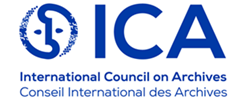What We Do
CCAAA is a network of relevant international non-governmental organisations dealing with all aspects of audiovisual archiving on a professional level speaking with a common voice with the aim of promoting and encouraging:
- The recognition of the audiovisual heritage as part of the world’s cultural and documentary heritage
- The preservation and the accessibility of the audiovisual heritage on an international level.
Why the CCAAA Exists
The audiovisual heritage is an endangered part of the cultural and documentary heritage.
The archival value assigned to AV Heritage arises from its intellectual, cultural, and academic content and is not dependent on its source or on transient commercial factors.
Acting in a coordinated way, the CCAAA members can contribute in a significant way to the safeguarding of the audiovisual heritage.
The preservation of the audiovisual heritage concerns those who produce, those who preserve and disseminate as well as those who use audiovisual documents.
The digital age has extended the traditional boundaries of the audio visual heritage. The CCAAA can play an important role in seeking solutions to the challenges regarding preservation, provision of access and copyright that accompany digitisation.
It is in the interest of the audiovisual heritage to co-operate with international associations representing the communities of archives, libraries and museums as well as international associations representing relevant groups of producers and users.
The Council is governed by its Terms of Reference.
- The CCAAA organises the Joint Technical Symposium (JTS), an international gathering for all specialists of the audio-visual, cinema and sound heritage.
- The CCAAA coordinates the events celebrating the World Day for Audiovisual Heritage around the world, on behalf of UNESCO.
What We Do
CCAAA is a network of relevant international non-governmental organisations dealing with all aspects of audiovisual archiving on a professional level speaking with a common voice with the aim of promoting and encouraging:
- The recognition of the audiovisual heritage as part of the world’s cultural and documentary heritage
- The preservation and the accessibility of the audiovisual heritage on an international level.
Why the CCAAA Exists
The audiovisual heritage is an endangered part of the cultural and documentary heritage.
The archival value assigned to AV Heritage arises from its intellectual, cultural, and academic content and is not dependent on its source or on transient commercial factors.
Acting in a coordinated way, the CCAAA members can contribute in a significant way to the safeguarding of the audiovisual heritage.
The preservation of the audiovisual heritage concerns those who produce, those who preserve and disseminate as well as those who use audiovisual documents.
The digital age has extended the traditional boundaries of the audio visual heritage. The CCAAA can play an important role in seeking solutions to the challenges regarding preservation, provision of access and copyright that accompany digitisation.
It is in the interest of the audiovisual heritage to co-operate with international associations representing the communities of archives, libraries and museums as well as international associations representing relevant groups of producers and users.
The Council is governed by its Terms of Reference.
- The CCAAA organises the Joint Technical Symposium (JTS), an international gathering for all specialists of the audio-visual, cinema and sound heritage.
- The CCAAA coordinates the events celebrating the World Day for Audiovisual Heritage around the world, on behalf of UNESCO.












